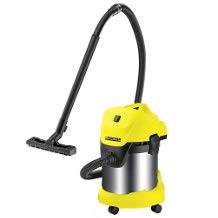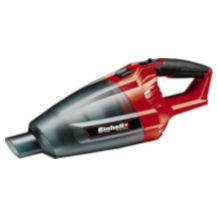Bagless vacuum cleaner purchasing advice: how to choose the right product
- What you need to know
- Bagless vacuum cleaners work without a bag using cyclone technology or a built-in water filter.
- In addition to the classic vacuum cleaners, there are also handheld and stick vacuum cleaners that usually work with the help of a rechargeable battery.
- Since HEPA filters capture not only the finest dirt but also pollen, they are particularly suitable for allergy sufferers.
- When purchasing, pay less attention to the wattage and more to the technology used.
- Ideally, you should clean your bagless vacuum cleaner at least every four weeks.
For the environment and the nerves
Anyone who values a clean home needs a good vacuum cleaner. This is a long-term investment that should serve you well for years. The choice of the right vacuum cleaner should be carefully considered. If you choose a bagless vacuum cleaner, you pay once; there is no need to buy bags with this type. The money saved can be used elsewhere.
Especially in times of environmental protection, bagless vacuum cleaners are becoming increasingly popular; after all, the user does not have to buy and dispose of new bags regularly, but only has to empty the container from time to time. A bagless vacuum cleaner produces less waste with the same performance.
The bagless vacuum cleaner was invented by James Dyson, who was not satisfied with the vacuum cleaners on the market at the time. After two years and many failed attempts, he applied for a patent for the first device in 1980. Even today, bagless vacuum cleaners from the manufacturer Dyson enjoy great popularity. So bagless vacuum cleaners are not an invention of the 21st century. The various manufacturers have many years of experience in designing these models.
Advantages and disadvantages of bagless vacuum cleaners
A bagless vacuum cleaner has several advantages and disadvantages compared to a bagged vacuum cleaner. The differences start with the price: the pure purchase price is lower for bagged vacuum cleaners; however, in the long run you save a lot of money with a bagless vacuum cleaner. This is because you can do without the cost of vacuum cleaner bags. You also save yourself the frustration of finding the one bag that fits your vacuum cleaner model. Since the container of a bagless vacuum cleaner is mostly transparent, you can easily see when it needs to be emptied. However, unlike bagged vacuum cleaners, the fullness of the container does not negatively affect the suction power. In addition, you don’t have to constantly dispose of used bags, which is good for the environment.
Bagless vacuum cleaners are only suitable for allergy sufferers to a certain extent. With the right filter, most fine dust and pollen can be collected, but allergy sufferers cannot completely avoid the allergens sucked up when emptying the chamber. A special type of bagless vacuum cleaner works with a water filter. Since the allergens are ‘trapped’ in the water, they are not dispersed when emptied as with the other bagless versions. Cleaning the container is generally more time-consuming with bagless vacuum cleaners. Moreover, bagless vacuum cleaners reach a noise level of up to 80 dB. This is roughly equivalent to the noise level of a busy street.
Advantages
- Cheaper in the long term
- No bag necessary
- More environmentally friendly
- Constant suction power
- Full container directly recognizable
Disadvantages
- Higher acquisition costs
- Only to a certain extent suitable for allergy sufferers
- Elaborate cleaning
- Can be quite loud
How bagless vacuum cleaners work
All bagless vacuum cleaners work according to the same principle: cyclone separation. This separates air and dust by means of centrifugal forces. The dirt is sucked into the cyclone chamber and whirled upwards. The resulting centrifugal force presses it to the edge of the centrifugal separator and transports it into the collection container. Manufacturers implement this technology in two ways: single cyclone technology and multiple cyclone technology.
Single cyclonic bagless vacuum cleaners
Single cyclonic vacuum cleaners are, as the name suggests, equipped with a single cyclone inside the cone-shaped container. The incoming air creates a vortex. The centrifugal forces created by this cyclone push the coarser dust particles to the edge and from there into the collection container. The air in the center is then sucked upwards. On its way up, the exhaust air flows through the exhaust grille into the open air. In the process, a central filter made of paper catches the remaining fine dirt.
Multi cyclonic bagless vacuum cleaners
The multiple cyclone technology works like the single cyclone version — with the difference that a second cleaning process follows the first. In this additional process, several small cyclones work to clean the air a second time, replacing the paper filter. Due to their small size, the centrifugal separators are much faster, so that the dust is separated even more finely and pressed outwards. The more cyclones are installed, the lower the proportion of fine dust in the exhaust air.
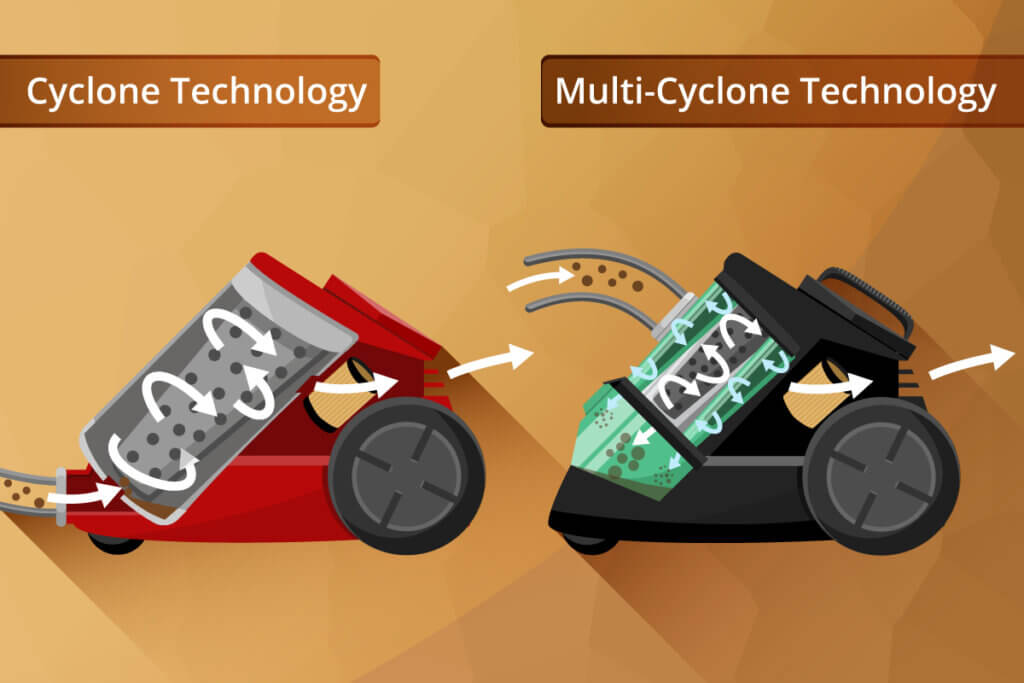
Special case: bagless vacuum cleaners with water filter
Vacuum cleaners with water filter are a special form of bagless vacuum cleaners. These models have neither a dust bag nor do they work with cyclone technology. Instead, they are equipped with a water tank into which the dirt is directed and remains. Only when even the finest dust particles need to be removed is an additional filter or a so-called separator necessary. The filter is used after the water bath; the separator rotates at high speed in the water tank and swirls the dirt particles, binding them as well. In this way, the separator’s mode of operation is similar to a cyclone. A vacuum cleaner with a water filter and separator achieves a cleaning level of up to 99% and thus works most effectively.
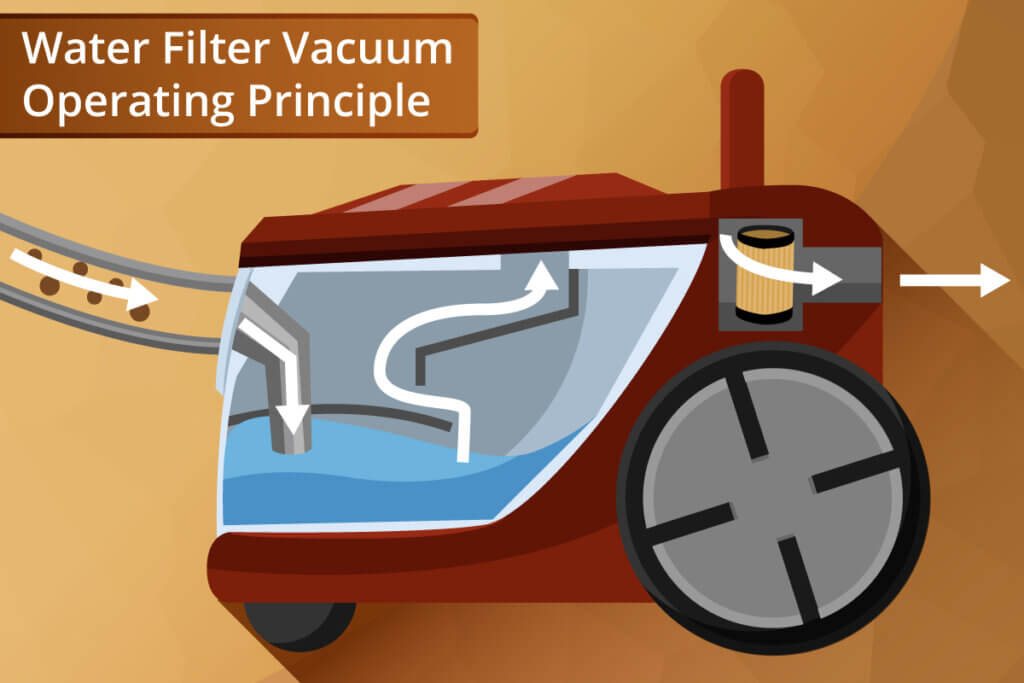
For whom is a bagless vacuum cleaner with water filter worthwhile?
Bagless vacuum cleaners with water filters are best for allergy sufferers. The dirt and pollen are in the water so that they cannot escape into the air when emptied. If a separator is installed, it separates the dirt even more finely from the air. This largely frees the environment from dust and pollen; allergy sufferers are spared from escaping allergens when they empty the water bath.
Types of vacuum cleaners
For household use, you can find three types of vacuum cleaners: floor, handheld, and stick vacuum cleaners. All three types can work both with and without a bag. The last two types are mainly cordless vacuum cleaners, which means that they work with a rechargeable battery.
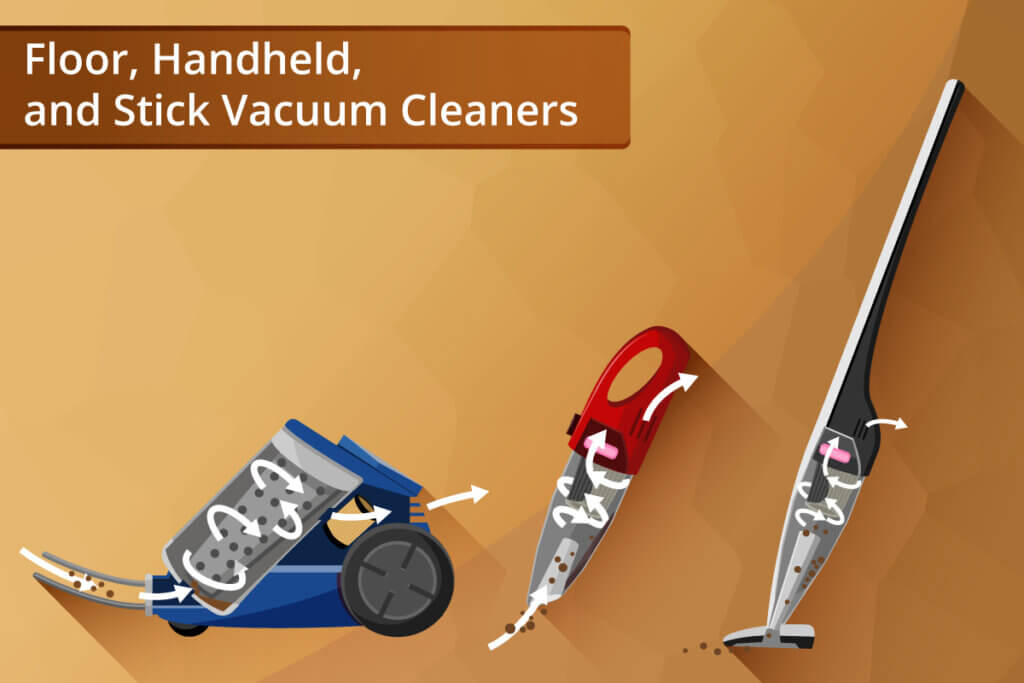
Floor vacuum cleaner
The floor vacuum cleaner is the most common and suitable for every household. It has the best suction power of all types. It is also distinguished by the variety of sizes and filter systems as well as the available accessories. The latter includes various nozzles and brushes, such as a crevice nozzle or a special brush for removing pet hair. You can therefore adapt your device exactly to your living situation, be it a one-room flat, a multi-room flat, or a multi-storey house.
Most vacuum cleaners are connected to the power supply by means of a cable; you manually move the suction attachment over the surface to clean the floor. With different suction attachments, you can reach every corner for a comprehensive cleaning. Especially in larger flats or houses, you are limited by the length of the cable and the distance to the next socket; running back and forth while vacuuming is usually unavoidable. Of all the designs, the floor vacuum cleaners requires the most storage space.
Advantages
- Strongest suction power
- Various attachments, such as a crevice nozzle
- High capacity
- Suitable for any living space
Disadvantages
- Limited radius of action
- Large and heavy
- Much storage space needed
Handheld vacuum cleaners
Handheld vacuum cleaners are particularly space-saving: the suction tube, motor, dust container, and fan unit are in a small housing that you can hold in your hand without much effort. Most of the devices run on a rechargeable battery, so that handheld vacuum cleaners can be used without spatial restrictions. In contrast to floor vacuum cleaners, however, their suction power is only mediocre.
Here, too, suction attachments allow vacuuming a wide variety of corners and surfaces; the interior of a car, for example, can be cleaned very well with a handheld vacuum cleaner. It is also an advantage in households with small children or even pets: pet hair on the sofa or small accidents like a fallen sugar bowl can be removed quickly and easily. For coarse dirt on small surfaces or for hard-to-reach areas, the handheld vacuum cleaner is the most efficient option; however, it is less suitable for allergy sufferers due to its low filter performance and the escaping fine dust. Thus, it is not a replacement but rather a supplement to the bagless floor vacuum cleaner.
Advantages
- Every corner accessible
- Unrestricted radius of action
- Small and compact
- Space-saving
Disadvantages
- Not suitable for large areas
- Mediocre suction power
- Weak filter performance
Stick vacuum cleaners
You may know this type as a stick vacuum cleaner or upright vacuum cleaner. Sometimes it is also marketed as a handheld vacuum cleaner, as some versions can be converted as needed by means of attachable telescopic handles and a floor nozzle. Consequently, you gain flexibility with the purchase of a 2-in-1 device.
Stick vacuum cleaners are an appliance unit: suction tube and handle are combined, the body is located near the handle or the nozzle, depending on the design. The construction resembles a broom or a mop; vacuuming is thus done comfortably and, above all, back-friendly while standing. Most of these devices are battery-operated, but a small number are corded. The dust box is smaller than that of floor vacuum cleaners; the suction power and deep cleaning are also weaker. Because of their compact design, stick vacuum cleaners are well suited for cleaning the floors of small flats with little storage space and for quick cleaning in between. They are therefore the middle ground between floor and handheld vacuum cleaners.
Advantages
- Back-friendly
- Mostly unrestricted radius of action
- Space-saving
- Sometimes convertible into handheld vacuum cleaner
Disadvantages
- Small dust box
- Medium suction power
- Weak deep cleaning
Is a cordless vacuum cleaner worth it?
Cordless vacuum cleaners are either handheld vacuum cleaners, stick vacuum cleaners, or a combination of both types. So, if you are considering buying one of these, a cordless vacuum cleaner is a good choice. However, pay attention to the battery life. At full suction power, the battery is used up quickly; most models don’t last a quarter of an hour. For small areas and lightly soiled surfaces that do not require the highest power, a cordless vacuum cleaner is sufficient. Also consider the recharging time. While a vacuum cleaner with a cord is immediately functional, the battery of a cordless vacuum cleaner needs to be charged first if empty. If you value complete freedom of movement and only need to vacuum small areas, a cordless vacuum cleaner is still the right choice.
Things to consider when purchasing
There are several things to consider when purchasing a bagless vacuum cleaner. Factors such as the living space, the number of people in the household, and possible allergies influence the choice. A large, bulky vacuum cleaner will not be able to reach all the corners in a small and winding flat, while a small vacuum cleaner is neither time- nor energy-efficient in a large flat or house.
The filter system
A good filter system is crucial for efficient cleaning. This affects how much fine dust you can rid your home of. The system with the highest filtration capacity for vacuum cleaners is the HEPA filter (High Efficiency Particulate Air Filter). A bagless vacuum cleaner with a HEPA filter is especially important for allergy sufferers. As this HEPA filter is specialized in particles with a diameter of less than one micrometer, it filters bacteria, viruses, mite eggs and droppings, aerosols, smoke particles, as well as pollen from the exhaust air. The two filter classes of HEPA filters are H13 with 99.95% filtration efficiency and H14 with 99.995% filtration efficiency. Microfilters made of fleece are coarser-grained than HEPA filters and therefore let more dust through. However, if you are not allergic and don’t live with someone who is, a microfilter is usually sufficient.
The weight
Depending on the model, vacuum cleaners can weigh up to 22 pounds (10kg). Such a weight greatly restricts handling, especially for users with physical constraints. If you have to vacuum several floors or need a high degree of flexibility, you should look for a lighter device. There are also vacuum cleaners without a bag that weigh less than 11 pounds (5kg), such as the Philips FC9332/09 with 10 pounds (4.5kg). However, the weight does not affect the suction power. So you can look for a device that meets your requirements regardless of the weight.
The size of the dust container
Pay attention to the dust container’s capacity and handling. The capacity of the dust container is between 1.5 and 4 liters (approx. 50 oz to 1 gal) for most floor vacuum cleaners without a bag; handheld and upright vacuum cleaners, on the other hand, have a smaller container in comparison. The larger your household, the more sensible a high volume is. But these models are heavier than bagless vacuum cleaners with a smaller dust container. If you need a lightweight model, for example because of your constitution or because you have several floors to vacuum, you should go for a vacuum cleaner with a small capacity. It is no use buying a vacuum cleaner with a large dust container if you cannot use it.
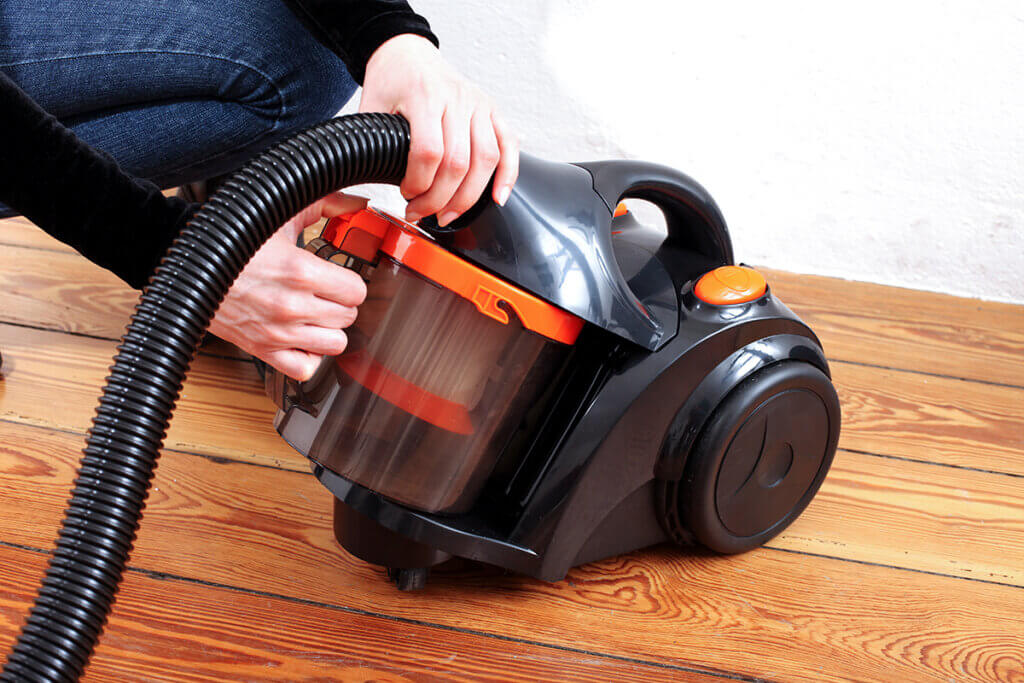
The living space and radius of action
The living space to be cleaned and the associated requirements significantly influence your choice of vacuum cleaner: depending on whether you live in a small or large flat or in a multi-storey building.
If you live alone or as a couple in a small flat, a simple and compact single cyclonic vacuum cleaner with a 1.5 liter (approx. 50 ounces) dust box is usually sufficient. In small flats, there is usually only one type of floor covering. Therefore, you do not need a device that provides identically powerful suction on different surfaces, such as hard floors and carpet. A combination device that you can use as a stick or handheld vacuum cleaner is perfectly adequate. The price of these bagless vacuum cleaners starts at about $50.
For families or multi-person households in general, bagless vacuum cleaners are more suitable than upright or handheld vacuum cleaners. With the high, usually adjustable suction power and the diverse accessories of nozzles and brushes, you can clean both upholstery joints and textiles and free them from pet hair, for example. If the dust container has a capacity of at least 2 liters (approx. 68 ounces), you save yourself the trouble of emptying it frequently. The cable should be at least 33 feet (10m) long for the longest possible operating radius. You can get a single cyclonic vacuum cleaner for easy-care surfaces for as little as $60; but if your home has different, sometimes demanding surfaces, a multi cyclonic vacuum cleaner starting at $100 is the better choice. The latter offers the strongest suction power, so that it can remove coarse and fine dirt from all types of floors, whether carpets or different hard floors.
If you have a house or flat with several floors, the vacuum cleaner should be as light as possible; floor or stick vacuums are good for this. Weigh up which of the two models is more suited to your needs.
How loud can the bagless vacuum cleaner be?
Most bagless vacuum cleaners measure between 60 and 80 dB. For comparison, a normal conversation has a volume of 65 dB, a washing machine reaches 75 dB when spinning and 80 dB is equivalent to playing a piano or arguing. However, there are also particularly quiet models with a volume of less than 60 dB. These are especially recommended if you live with children or animals.
Maintenance tips
To enjoy your bagless vacuum cleaner for a long time, you need to care for it properly. With a bagged vacuum cleaner, the user has to remove the full one and replace it with an empty one. With a bagless vacuum cleaner, the procedure is a little more elaborate.
The correct emptying
Empty the container at the latest when the filling reaches the separating disc of the filter housing. Next, release the lock and open the lid. If the dirt is already over the edge, you must empty the dust box immediately, otherwise the suction power will decrease. After that, lift the dust box including the filter housing out of the vacuum cleaner and hold it as straight as possible. Dirt particles should not fall out. Ideally, you have already opened the dustbin so that you can carefully remove the filter housing and easily empty the dirt particles into the bin liner.
Remove remaining dust fluff easily with a brush, tap out fine particles at the edge of the bin. While you can easily tap out the contents of the dirt collection bin, if there is a large amount of fine dust it is worth putting the bin liner over the dust container to avoid clouds of dirt. If you need to remove a layer of dirt from the bottom of the collection container, take a tool and gently loosen this layer; then it can also be removed.
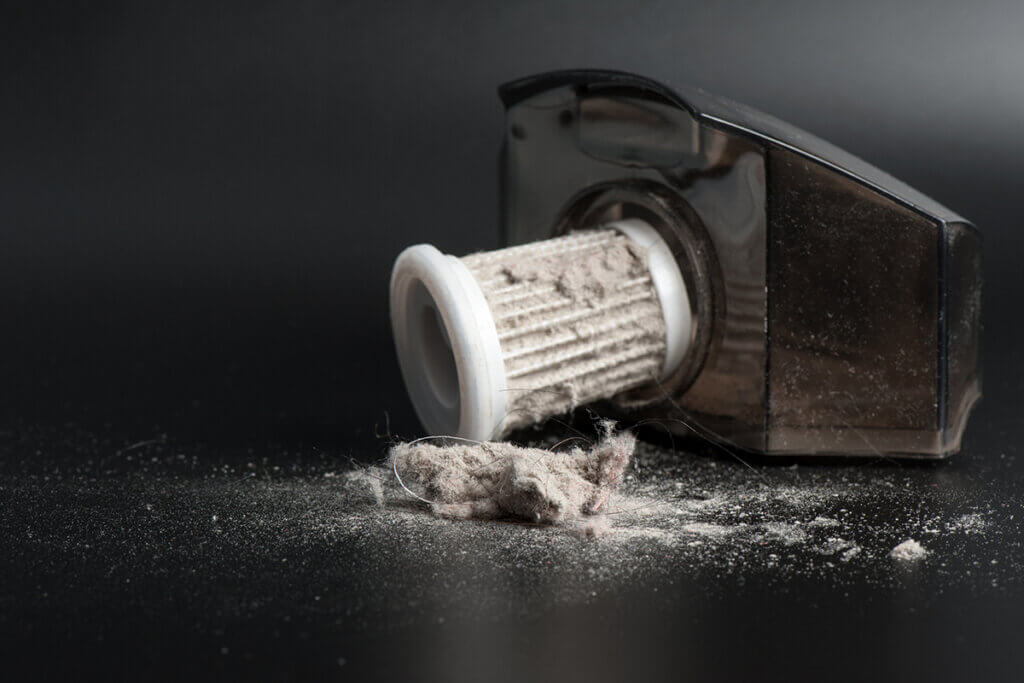
The right cleaning
Regular cleaning ensures that the bagless vacuum cleaner doesn’t lose performance. While you can easily tell when to empty the dust container, you need to check the filter carefully. Dust in the filter severely limits the suction power. Therefore, rinse the emptied container completely with water and let it dry at room temperature for 24 hours. Ideally, check the filter every time you empty it. However, you should carry out the next cleaning no later than four weeks after the last one.
For a thorough cleaning of the appliance and tubes, it is recommended to disassemble the vacuum cleaner with the exception of the motor. This is particularly necessary if the vacuum cleaner doesn’t perform at full capacity without a bag, even though the filter has been cleaned; this could be due to larger particles in the suction tube. If you hold the tube against the light, you may be able to see larger impurities. Simply shake them out of the tube. You can use a broomstick to loosen the dirt in the tube and inside the suction hose. However, you should not clean the hose with water, as it is difficult to dry from the inside. The floor nozzles are best cleaned with a brush or comb. A pet hair brush also works very well. If you have a single cyclonic vacuum cleaner with a central paper filter, clean it regularly as well.
Images 1-3: © FinalCheck | Image 4: © RAM / stock.adobe.com | Image 5: © NorGal / stock.adobe.com

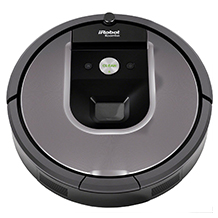
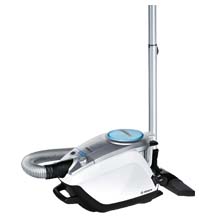
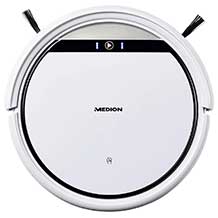
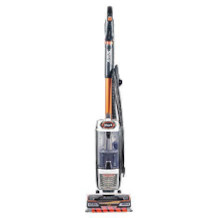
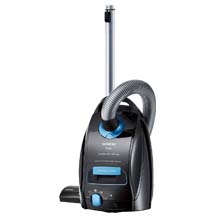
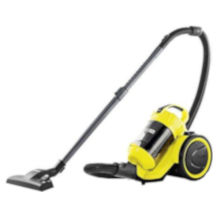
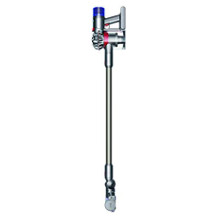
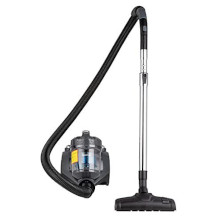
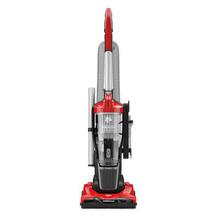
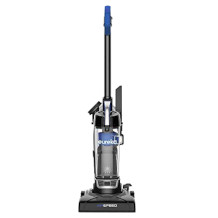
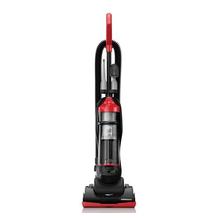
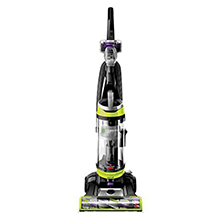
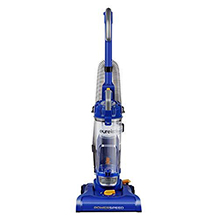
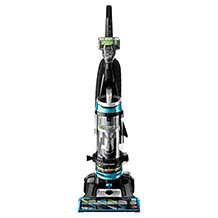
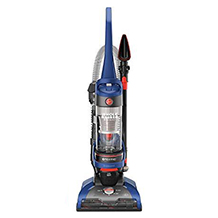
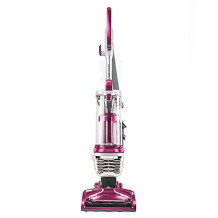
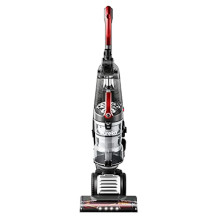

 no reviews
no reviews
